What is Automated Milk Processing System
Automated Milk Processing Systems are advanced machinery designed to handle the various stages of milk processing, from collection and transportation to the final packaging of dairy products. These systems are integral to dairy industry operations, providing efficiency, consistency, and higher productivity in the creation of milk and its by-products such as cheese, yogurt, and butter. They are especially beneficial for large-scale dairy producers, enabling them to meet the high demands of the market with minimal labor and greater control over the process.
The core principle of automated milk processing systems is to streamline the complex tasks involved in dairy production through the integration of technology. These systems typically include components such as tanks for storage, separators for milk and cream, pasteurizers for heat treatment, homogenizers for consistency, and packaging equipment for the final presentation of the dairy product. Each component plays a vital role in ensuring that milk is processed safely and hygienically while preserving its nutritional value and taste.
Automated Milk Processing Systems are designed with the user in mind. They are operated by sophisticated control panels that allow for precise management of each stage of the process. Users can program the system to handle different types of milk (raw, pasteurized, etc.) and adjust settings to maintain quality and safety standards. The automation also aids in reducing the chances of human error, which can be costly in an industry that requires precision and adherence to strict regulations.
Types of Automated Milk Processing System
The variety of automated milk processing systems available caters to different scales of production and diverse end products. Here's a closer look at some common types:
-
Pasteurizers: These machines heat milk to a specific temperature that eliminates harmful bacteria while preserving the nutritional content. Pasteurizers are crucial for ensuring that milk is safe for consumption.
-
Homogenizers: After pasteurization, homogenizers break down fat globules in milk, ensuring consistent fat content throughout the product. This is vital for producing uniform dairy products like cream or ice cream.
-
Separators: Milk separators spin raw milk to separate cream from skim milk. They are essential in commercial dairy operations to maintain product quality and meet regulatory standards for fat content in dairy products.
-
Fillers: Used primarily in the dairy industry for packaging products like milk or yogurt, fillers measure and dispense precise volumes of dairy items into containers.
-
Conveyors: Conveyor systems transport products along the milk processing line, reducing manual handling. They come in various designs such as flat belt or chain, depending on the specific needs of the dairy plant.
How to choose Automated Milk Processing System
Selecting an appropriate Automated Milk Processing System is critical for businesses looking to optimize their dairy operations. Factors such as scale of production, types of processed products, space availability, and budget constraints should all be considered when evaluating options.
For businesses focused on maximizing efficiency, an integrated system that covers all stages of milk processing (from pasteurization to packaging) may be most beneficial. This includes automated components like PLC-controlled systems for precise temperature and time settings during pasteurization.
The choice of processing system will also depend on the variety of products being produced. If a company is looking to diversify its product offerings, it may opt for a system that can handle multiple types of processing such as UHT (Ultra-High Temperature) pasteurization in addition to standard processing.
Furthermore, considering local service locations is important for ongoing maintenance and technical support. Finally, ensuring that the system's core components such as motors and pumps are made from quality materials like stainless steel can help with longevity and reliability.
About Automated Milk Processing System on Alibaba.com
Alibaba.com stands out as a global marketplace connecting buyers with suppliers of automated milk processing systems suitable for all types of dairy operations. With an extensive array of options available from various suppliers around the world, businesses can find the perfect match for their specific needs without compromising on quality or efficiency. The platform's emphasis on connecting buyers with reputable suppliers ensures a level of trust when sourcing these critical systems.
The tailored trading experience on Alibaba.com allows businesses to negotiate terms that fit their unique requirements, including customization of machinery to meet particular production goals. Whether you're looking for a complete processing line or specific components for your operation's needs, Alibaba.com simplifies the process with user-friendly search capabilities that help identify options that align with your business objectives.
Moreover, Alibaba.com's Trade Assurance service provides an additional layer of security by safeguarding payments until delivery is confirmed. This commitment to customer satisfaction reinforces why many choose Alibaba.com as their go-to source for wholesale dairy processing equipment. With its worldwide reach and comprehensive support services, Alibaba.com facilitates an efficient path for businesses seeking to enhance their dairy processing capabilities or expand their product offerings in the dairy industry.
Common FAQs for Automated Milk Processing System
What are the primary benefits of incorporating an Automated Milk Processing System into my business?
Automating milk processing can significantly increase the efficiency of operations, reduce labor costs, and maintain consistent product quality. It also provides precise control over production which can lead to higher volumes and a more standardized end product.
How does an Automated Milk Processing System improve the safety and hygiene of milk products?
Automated systems are designed to handle all stages of the process in a closed environment, which minimizes the potential for contamination and ensures higher hygiene standards. This can be crucial for businesses aiming to meet strict food safety regulations.
Can Automated Milk Processing Systems be customized for specific business needs?
Yes, many suppliers offer customization options for Automated Milk Processing Systems to cater to specific operational requirements, such as plant layout, capacity, and additional features that align with your business goals.
What factors should I consider when selecting the capacity for an Automated Milk Processing System?
Consider your current production needs, growth projections, space availability, and how the system can scale up to accommodate increased demand in the future. A system that offers modular expansion could be preferable.
Are there industry-specific Automated Milk Processing Systems available?
Yes, there are industry-specific Automated Milk Processing Systems tailored to different sectors like food shops, restaurants, hotels, and cafes. These are designed with the unique needs of these industries in mind.
What types of products can be produced using an Automated Milk Processing System?
An Automated Milk Processing System can be used to produce a wide range of dairy products including milk, cheese, yogurt, and various types of milk powders. The specific capabilities will depend on the system's design.
How does an Automated Milk Processing System contribute to energy savings?
Automated Milk Processing Systems are typically designed with energy-saving features such as high-accuracy temperature control and better insulation which can lead to reduced energy consumption compared to traditional methods.
What after-sales services are typically provided with Automated Milk Processing Systems?
After-sales services vary by supplier but can include online support, video technical support, engineers available to service machinery overseas, and in some cases, field maintenance and repair services.
Can an Automated Milk Processing System handle different types of milk?
Most Automated Milk Processing Systems are versatile and can handle various types of milk such as cow, goat, and sheep milk. However, it's important to check the specifications of each system to ensure it meets the requirements of your particular type of milk.
Is it possible to find a supplier that offers both new and used Automated Milk Processing Systems?
Yes, many suppliers provide options for both new and used Automated Milk Processing Systems. When purchasing used equipment, it's essential to assess its condition carefully to ensure it meets your standards.
How do I ensure consistent quality when using an Automated Milk Processing System?
Consistent quality can be maintained by setting appropriate parameters in the system's controls, conducting regular maintenance according to the manufacturer's recommendations, and ensuring that all components are functioning optimally.
What kind of support is available for implementing an Automated Milk Processing System in my business?
Support may include engineering assistance, installation guidance, operational training, and technical troubleshooting. Availability and extent of support will vary by supplier.



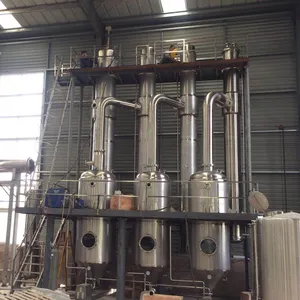

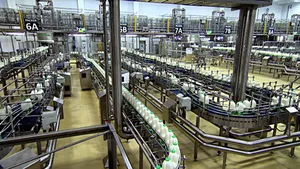



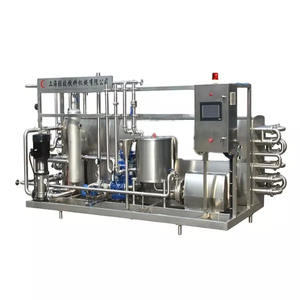

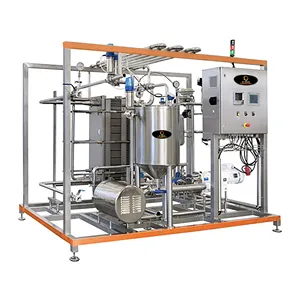
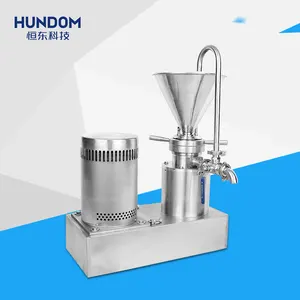




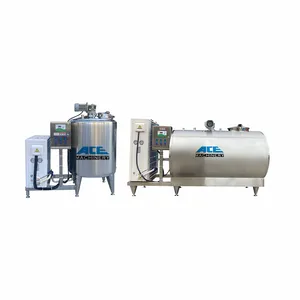









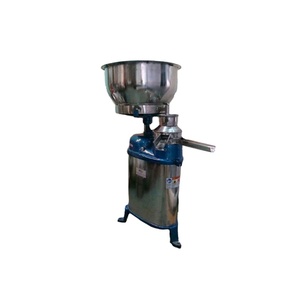


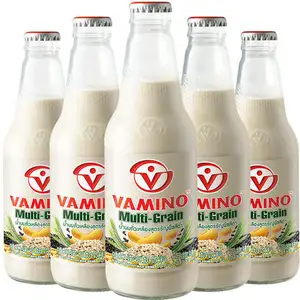
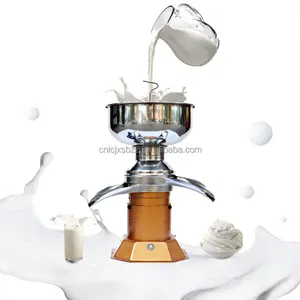


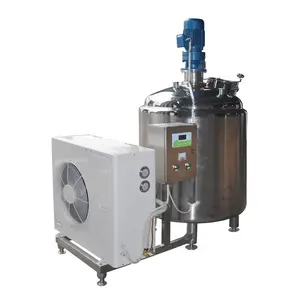



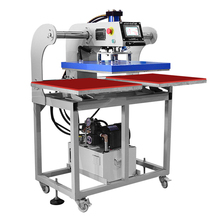
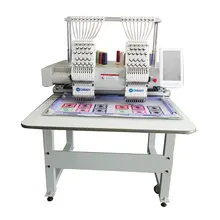



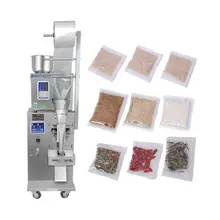

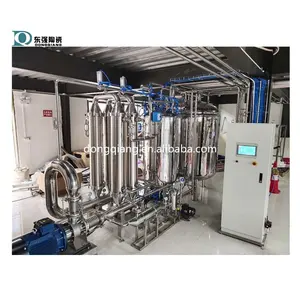

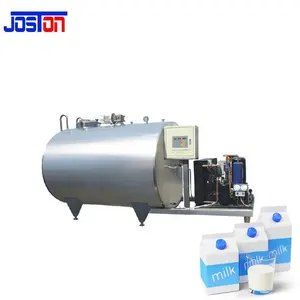



























 浙公网安备 33010002000092号
浙公网安备 33010002000092号 浙B2-20120091-4
浙B2-20120091-4